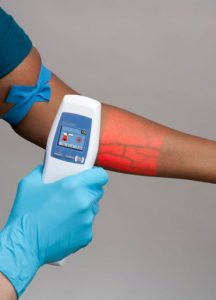31 The World as We Know It, Has Changed
Katherine DeLuca
In the following essay, Katherine DeLuca investigates The Promise of Interdisciplinary Studies, an article by Oskar Gruenwald, and how it applies to the transformation of higher education.
In The Promise of Interdisciplinary Studies: Re-Imagining the University, Oskar Gruenwald depicts the special promise of interdisciplinary studies in regards to scientific-technological breakthroughs. Gruenwald describes the importance of interdisciplinarity within up and coming universities. He states, “universities are crucial to this endeavor in their multiple roles of teaching, learning, research, and service; all educating young adults for a meaningful career, life, and citizenship in democracy”(1 Gruenwald).
According to Gruenwald, science, technology and communication now drive all aspects of life in the global village, most importantly higher education. Gruenwald primarily focuses on re-inventing the university, education for the self-generation, and redeeming the culture. Higher education is a key component to a successful life. Yes, society has done a fantastic job without re-inventing the university, but Gruenwald is correct. Gruenwald labels interdisciplinary studies as a “novelty” and I agree with him. Interdisciplinary research, clusters, and programs are being established across the United States. Students who are not studying all aspects of their field with an interdisciplinary approach are, in my eyes, at a disadvantage.
Gruenwald consistently refers back to the funding of interdisciplinary research. He believes that every dollar that isn’t being put forth for interdisciplinary studies is a reduced possibility for our future. I must agree: interdisciplinary studies is proven to broaden our intellectual horizons, therefore we must fund this type of education! If someone is thinking about majoring in interdisciplinary studies, and she is hesitant, all she has to do is think about the competition. For example, someone with a degree in education may apply for a job with over 100 other applicants, and maybe only 2 out of the 100 are interdisciplinary studies. From an employers point-of-view, someone who knows not only how to teach, but knows information about science, English, health etc. is a better investment.
According to Gruenwald, interdisciplinary studies fosters open-ended free inquiry—who wouldn’t want to attend a university with that philosophy! Many say that colleges around the world are simply watering holes filled with creativity and talent, so why not start with higher education to incorporate the interdisciplinary knowledge one will need to be successful in life! College may be the only time for some people to experience new things, and live within a multi-cultural community. It is the perfect opportunity to broaden our perspectives and learn from the diverse environment around us.
According to Gruenwald, colleges must be redesigned to be completely interdisciplinary. I can’t even imagine how excited I would be if I attended a school with zero majors. If every single person built his or her degree from the bottom up, how creative and amazing would that be? Nowadays, it feels like many students are pressured into certain degrees, and they may not actually wish to pursue that field for the rest of their life. In all honesty, what a waste of money! According to Gruenwald, “higher education shapes the nation’s future leaders in business, education, mass media and government and it is a major transmission belt for culture.” This truly makes me infuriated that we have not transformed our universities yet!

Gruenwald speaks specifically about the interdisciplinarity of the sciences as well. He believes that the natural sciences have turned to interdisciplinary engagement by the inner logic of discovery. One invention that was created through the interdisciplinary knowledge of science, mass media, and digital animation is the vein detector. Vein detectors digitally show the veins under someone’s skin for medical personal to easily find your vein, draw blood, or insert a catheter of many sources. It is a magical invention, and it demonstrates how the technological world is evolving. Thanks to interdisciplinarity, scientists are now able to find someone’s vein without any pain!
Unfortunately, challenges for interdisciplinary education remain. The major challenge is the interconnectedness between disciplines, fields, and sub-fields. According to Gruenwald, and from my personal experience, more and more students are showing an interest in interdisciplinary studies, and who can blame them! Gruenwald depicts the challenges of teaching interdisciplinarity, but Robin DeRosa, director of the Interdisciplinary Studies program at Plymouth State University, has done a fantastic job not only teaching me about interdisciplinary knowledge, but how to apply my chosen disciplines to the world of interdisciplinarity!
This article was edited by Janina Misiewicz from its original version by Katherine DeLuca, available under a CC-BY 4.0 license at https://katherinedeluca.wordpress.com/the-world-as-we-know-it-has-changed/.
Citations:
Gruenwald, Oskar. “The Promise of Interdisciplinary Studies: Re-Imagining the University.” Journal Of Interdisciplinary Studies, vol. 26, no. 1/2, 2014, pp. 1-28.

